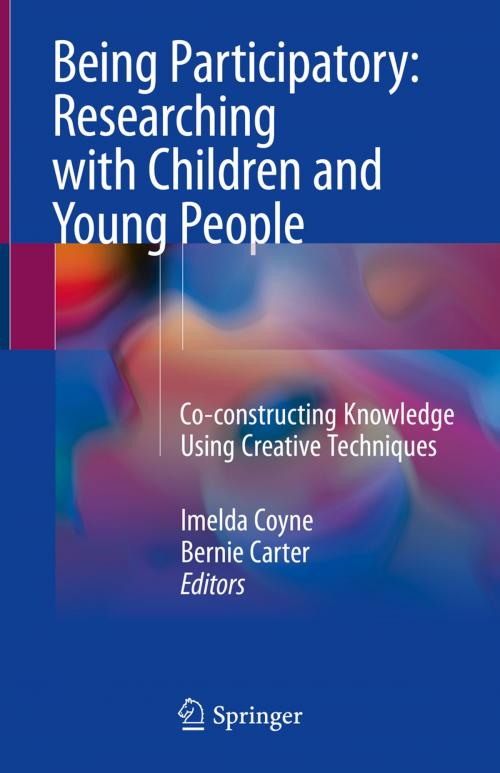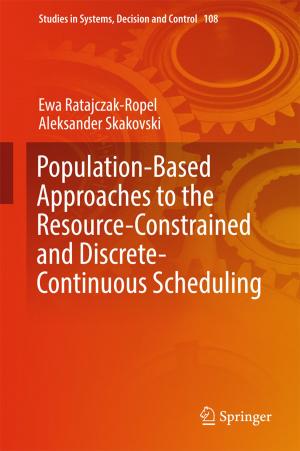Being Participatory: Researching with Children and Young People
Co-constructing Knowledge Using Creative Techniques
Nonfiction, Health & Well Being, Medical, Nursing, Research & Theory, Management & Leadership| Author: | ISBN: | 9783319712284 | |
| Publisher: | Springer International Publishing | Publication: | February 23, 2018 |
| Imprint: | Springer | Language: | English |
| Author: | |
| ISBN: | 9783319712284 |
| Publisher: | Springer International Publishing |
| Publication: | February 23, 2018 |
| Imprint: | Springer |
| Language: | English |
This book provides a clear framework for conducting participatory research with children and young people supported with practical examples from international research studies. Our aim is to encourage more participatory research with children and young people on all matters that affect their lives. This book illustrates innovative ways of being participatory and sheds new light on involvement strategies that play to children’s and young people’s competencies.
Participatory research is based on the recognition of children and young people as active contributors rather than objects of research. Participatory researchers support and value the voices of children and young people in all matters that concern them. Core to participatory research practice is a strengths-based approach that aims to promote the active engagement of children and young people in all stages of research, from inception to implementation and beyond.
Engagement of children and young people requires the use of creative, participatory methods, tools and involvement strategies to reveal children’s competencies. This book shares knowledge about creative participatory techniques that can enable and promote children’s ways of expressing their views and experiences. The book provides guidance on appropriate techniques that reduce the power differential in the adult-child relationship and which optimise children’s abilities to participate in research.
This book is targeted at researchers, academics, and practitioners who need guidance on what tools are available, how the tools can be used, advantages and challenges, and how best to involve children in all stages of a research project. It will provide several examples of how children can have an active participatory role in research. There is increasing interest in involving children as co-researchers but little guidance on how this can be done. This book fills a this gap by addressing all of these issues and by providing worked examples from leading researchers and academics.
This book provides a clear framework for conducting participatory research with children and young people supported with practical examples from international research studies. Our aim is to encourage more participatory research with children and young people on all matters that affect their lives. This book illustrates innovative ways of being participatory and sheds new light on involvement strategies that play to children’s and young people’s competencies.
Participatory research is based on the recognition of children and young people as active contributors rather than objects of research. Participatory researchers support and value the voices of children and young people in all matters that concern them. Core to participatory research practice is a strengths-based approach that aims to promote the active engagement of children and young people in all stages of research, from inception to implementation and beyond.
Engagement of children and young people requires the use of creative, participatory methods, tools and involvement strategies to reveal children’s competencies. This book shares knowledge about creative participatory techniques that can enable and promote children’s ways of expressing their views and experiences. The book provides guidance on appropriate techniques that reduce the power differential in the adult-child relationship and which optimise children’s abilities to participate in research.
This book is targeted at researchers, academics, and practitioners who need guidance on what tools are available, how the tools can be used, advantages and challenges, and how best to involve children in all stages of a research project. It will provide several examples of how children can have an active participatory role in research. There is increasing interest in involving children as co-researchers but little guidance on how this can be done. This book fills a this gap by addressing all of these issues and by providing worked examples from leading researchers and academics.















